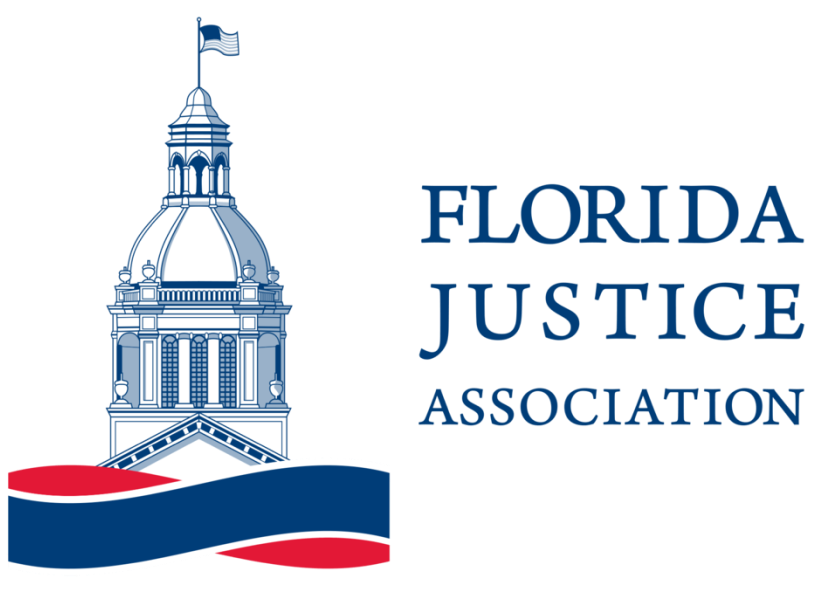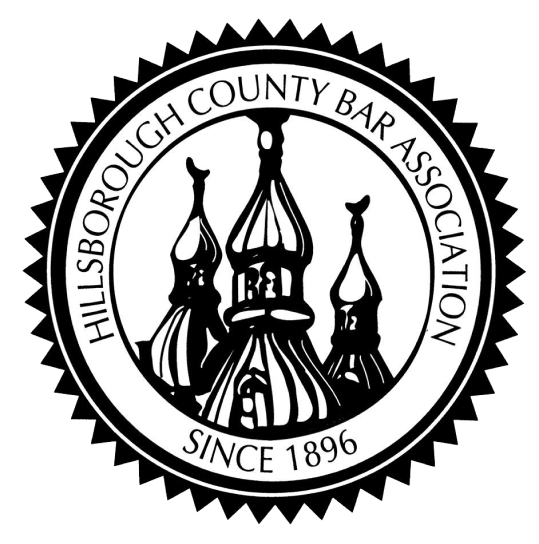Probate Real Estate – Practical Considerations for Realtors
In our legal representation of personal representatives through the probate of their loved ones’ estates we often encounter questions related to the ownership and transfer of real estate. The purpose of this article is to provide some practical information regarding what probate is, who is authorized to contract to list probate real estate for sale, and well as what the probate process entails.
What is probate?
Generally speaking probate is the court procedure through which, if a decedent had a will,his or her will is determined to be valid by the court, the decedent’s creditors are paid, and ownership of his or her property is transferred to those beneficiaries specified in the will. If the decedent dies “intestate”, i.e. without a will, the decedent’s property is transferred to his or her heirs as delineated in the Florida Statutes. Title to the decedent’s property vests in the beneficiaries on the death of the decedent, and is subject to divestment if the property is needed to cover the costs of the administration. No formal act of the personal representative is required to convey the title; however beneficiaries cannot prove their title to the decedent’s property until the will is probated. Completion of the probate action creates a chain of title indicating the transfer of ownership of the decedent’s property.
Probate Process.
After a person passes away, aninterested person, usually the person named as the personal representative in the decedent’s will, gathers information regarding the decedent’s assets and debtsand schedules an appointment with a probate attorney. An examination of the nature of the decedent’s assets, including a review as to how title is held on the various assets, is conducted. A determination is then made as to which assets are required to go through the probate court. We refer to those assets as “probate assets”. Probate assets are those assets which a decedent owned in his or her sole name and for which no beneficiary is named to receive upon his or her death. For example, most married couples own their homes as tenants by the entireties, which means that upon the death of one spouse the surviving spouse becomes the sole legal owner of the property by operation of law. Another example is a retirement account for which the decedent named his spouse or children as the beneficiaries. No probate is necessary to effectuate that transfer ofownership, thus the property is a “non-probate asset”.
In order to show the transfer ownership of the decedent’s probate assets to the beneficiaries, a petition for probate administration, which includes a request to be appointed a personal representative of the decedent’s estate, is filed with the court. Once appointed as the personal representative the Court signs a document called the “Letters of Administration”. These “Letters” serve as evidence that the named person has control and authority to manage the decedent’s assets. The personal representative has the authority and the obligation to take possession and establish control over all the decedent’s property during the course of the administration in accordance with the terms of the will and/or the Florida Statutes, with the specific exception of protected homestead property.
FLA.STAT. 732.101(2); FLA.STAT. 732.514
FLA.STAT. 733.103(1)
With the exception of protected homestead property and property needed to pay creditor claims and cover the costs of probate administration, the personal representative may distribute the decedent’s property to the beneficiaries merely by surrendering possession of it to them. When surrendering real property the best practice is for the personal representative to use a certificate of distribution (formerly known as a distributive deed) which is recorded in the county where the property is located in order to show the chain of title.It may be necessary to sell real property to raise cash for the payment of creditor claims, taxes, or administrative expenses. In that instance the courts look to the will to see if the decedent provided the PR with a power to sell real property. If so, the PR may sell real property without a court order. If the decedent’s will does not include a power of sale, real property may be sold in accordance with the authority granted to personal representatives under Florida Statutes 733.612(2) and 733.613. Importantly, no title to the property shall pass to the purchasers until the court authorizes or confirms the sale.
Implicit in the authority to sell the property is the authority to contract to list the decedent’s real property for sale. Provided the PR is acting for the benefit of the estate and in good faith he or she may act as the personal representative even before the Letters are issued. This situation frequently arises when the decedent’s family is anxious to sell the decedent’s real property because they are unable to afford to make the mortgage payments and or home owners’ association dues during a protracted probate process. It is the responsibility of the PR to maintain and protect probate assets during the pendency of the probate case. As such, steps should be taken to ensure that the mortgage is kept current to the extent the assets of the estate allow. Otherwise, just as during our lifetime, the bank may initiate a foreclosure action in the event of default. This mortgage encumbrance should be paid even if a formal claim is not filed in the probate proceeding.
Also following the issuance of the Letters of Administration, the Personal Representative should apply for an EIN with the IRS and then open an estate checking account with a bank of his or her choice. The estate’s liquid assets are then transferred into this estate account as well as the proceeds of the sale of probate real estate, unless the real estate has been determined by the court as the decedent’s homestead property.
Homestead vs. Non-homestead Property and Trust Property.
Special rules apply to homestead property, which is not considered as asset of the probate estate. Loosely speaking, homestead property is real property owned by a natural person, used as a primary residence, and which meets certain size requirements specified by law. In Florida the devise of the decedent’s homestead is prohibited if the decedent is survived by either a spouse or a minor child or children. Additionally, the Florida Homestead exemption provides the decedent’s surviving spouse or lineal heirs the right to receive the decedent’s primary residence free of claims from creditors, other than perfected security interests on the property such as the mortgage. There is no limit to the value of the property that is covered by a Florida homestead exemption.
FLA.STAT. 733.607(1)
FLA.STAT. 733.607(1)
FLA.STAT. 733.613(2)
FLA.STAT. 733.613(1)
FLA.STAT. 733.309; FLA.STAT. 733.601
Although the decedent’s homestead property is not a probate asset, the personal representative is allowed to take possession of property that reasonably appears to be protected homestead when that property is not occupied by a person who appears to have an interest in the property. This action may be taken “for the limited purpose of preserving, insuring, and protecting [the property] for the person having an interest in the property, pending a determination of its homestead status. In order for a determination of whether real property was the homestead property of the decedent, a petition to determine homestead status must be filed with the court. If the court determines that the property was indeed the decedent’s homestead property, the court signs and enters an Order Determining Homestead Status of Real Property. The Order contains a legal description of the property and distributes ownership to the decedent’s heirs. The order is recorded in the County Recorder’s Office and is now public record. The real estate is now owed by the specified heirs. If you as the realtor are contacted about listing the real estate for sale after this Order is entered you will need to contract with the new owners and not the with the personal representative as you would if the property is an asset of the estate. It is these same owners who will execute the deed transferring title at any closing on the sale of the property. Any proceeds of resulting from the sale may then be equally divided between the named heirs without the requirement of court approval, again because the property is not an asset of the estate.
If the decedent’s property is not his or her homestead property, such as a vacation home or investment property, the situation is a little different. When requested to list non-homestead property for sale, the property is an asset of the estate thus requiring the realtor to contract with the personal representative. At the closing of the sale of the property, the personal representative is the person to sign the deed transferring title to the purchasers and the check for the proceeds from the sale of the property should be made payable to the personal representative of the estate who will then deposit the funds into the estate account. Upon payment of the creditors, if any, and completion of the probate action, the personal representative will then distribute the remaining funds in accordance with the terms of the decedent’s will.
For various reasons, including the avoidance of probate, people often establish a more elaborate estate plan including a trust, to which they transfer title to various assets, including real estate. If you receive an inquiry regarding the sale of real estate which is owned by a trust, recognize that this property is not a probate asset and the authorized person to contract for its sale and to transfer title is the successor trustee named with the trust document itself.
Article X, §4(c) of the Florida Constitution;FLA.STAT. 732.4015(1)
FLA.STAT. 733.607(3)
Affidavit of Continuous Marriage.
Frequently with the death of one spouse, no probate action is required because the spouses owned everything jointly with rights of survivorship or named each other as the beneficiary of their various accounts and insurance policies. It is following the death of the surviving spouse that we often need to initiate a probate action. In this situation many title companies require the recording of an Affidavit of Continuous Marriage to show the chain of title from the married couple to the surviving, now single, spouse. The affidavit is a statement under oath that the husband and wife were married on a particular date, and remaining so married on the date ownership of the property was transferred to them, and continuing until the date of the first spouse’s death.
In summary, it is important to have a general understanding of the probate process and recognize some of the nuances with respect to the ultimate sale of the property and the distribution of the sale proceeds. Please note that this article is not meant to be an in depth analysis of real estate transactions involving probate property but is meant to make you aware of various issues so that you may spot them as you encounter them in your profession. As always it is strongly advised that you contact an attorney with any specific facts and questions you may have.
Anissa K. Morris, Esquire
Spinner Law Firm, P. A.
2418 Cypress Glen Drive
Wesley Chapel, FL 33544
Leave Your Reply
You must be logged in to post a comment.













